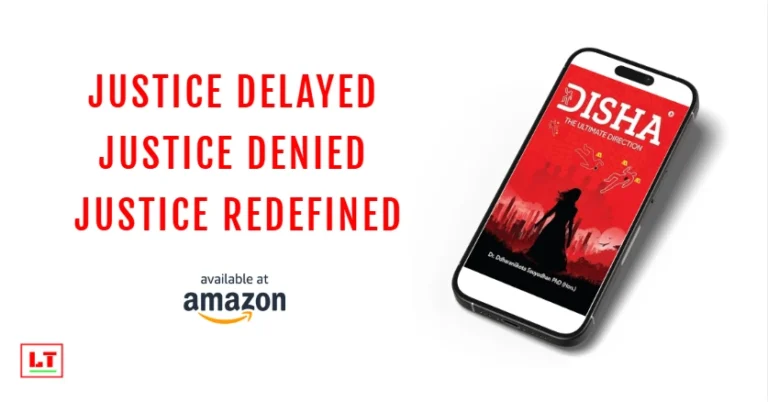In a time when many novels aim to entertain, Disha: The Ultimate Direction by Dr. Ddharaniikota Ssuyodhan stands out for its purpose. The book isn’t just a crime thriller—it’s a clarion call for justice, ethics, and societal change. Here’s how Disha does more than tell a story—it seeks to reform our shared conscience.
Real-Life Inspiration and Frustration
The inspiration for Disha dates back more than eight years to the tragic “Disha case” in Hyderabad, which profoundly impacted Dr. Ssuyodhan. He lived about a kilometre away from where the incident happened and was deeply disturbed by how the crime was handled.
That sense of frustration—of “not being able to do anything”—lingered with him. Later, when accused perpetrators were “encountered” (a colloquial way of describing law enforcement’s response), Dr. Ssuyodhan questioned whether justice was truly served. This questioning became the seed for Disha.
Challenging Institutional Silence and Systemic Failure
One of the strongest messages in Disha is how often institutional systems—law enforcement, justice, procedures—fall short when dealing with crimes against women. Dr. Ssuyodhan uses his background as a lawyer and social reformer to expose the gap between what is legal and what is just.
At the Disha book launch at T-Hub, Hyderabad (27 June 2025), many speakers highlighted how Disha provides a voice for women in uniform, challenges ethics, and demands reform in how institutions respond to gender violence.
The Protagonist as Reform Symbol
In Disha, the central character is a woman police officer who refuses to accept that protocol and routine are acceptable shields against injustice. Instead, she takes a proactive role in uncovering hidden links between crimes, going beyond official oversight. This fictional heroine reflects real-life calls for accountability and moral courage.
Literature as a Catalyst for Conversation
The launch event included panel discussions, excerpt readings, and public commentary. Artists, bureaucrats, and civil society representatives joined to discuss ethics, gender justice, and the responsibility of citizens to question silence. Disha prompted reflection about what happens when law becomes mechanized or distant from everyday moral challenges.
Why Disha Matters Now
- Awareness: It reminds us that public outrage must translate into systemic change, not just temporal sympathy.
- Empathy: By personalizing legal and moral dilemmas through fiction, it helps readers feel rather than just understand suffering and injustice.
- Dialogue: Books like Disha open up conversations in homes, schools, and communities about what justice means beyond the courtroom.
- Responsibility: It encourages both officials and citizens to consider their role in preventing injustice—not passively accepting that some wrongs go unchallenged.
Final Thought
Disha: The Ultimate Direction is more than a thriller; it is a call for reform. Dr. Ddharaniikota Ssuyodhan has not simply written a novel; he has built a mirror that reflects society’s failures and challenged us to imagine better. In doing so, Disha reminds us that storytelling isn’t just about what happens—it’s about what should happen, urging us all to move toward that direction.


